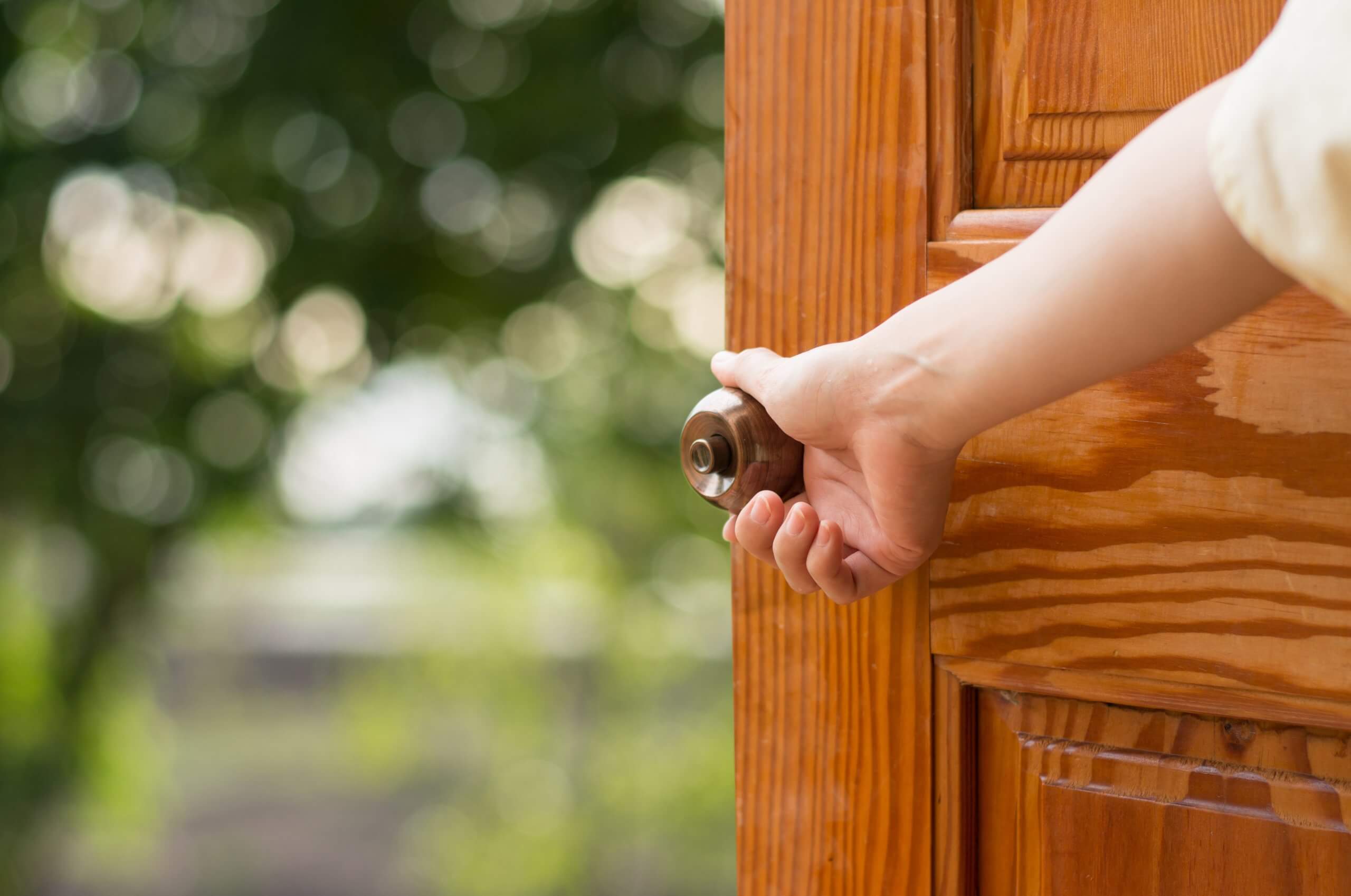
Left hand inswing, right hand inswing, left hand reverse, and right hand reverse...those are the options when deciding which way a single door should swing. Another term often tossed around is door handing. But door handing can also refer specifically to placement of the handle and locking mechanisms, too. Yes, it’s confusing!
Most people aren’t familiar with the construction terms that are used to describe placing a door. Fortunately, determining which way a door should swing is really not as difficult as it may seem at first.
When you’re replacing an existing door, it’s easiest to replicate the handing that was already in place. But when you’re installing a brand-new door, the process can be a little more complicated.
Typically, interior and exterior doors all swing into a room and open towards the nearest perpendicular wall. We call this an inswing. But in some cases, it’s necessary for a door to open outward (towards the person opening). We refer to this as reverse.
Still confused? Don't worry. Keep reading, and you’ll be a door-swing expert by the end of the page.
Understanding the correct swing direction and handing is important ,even if you’re not planning to install the door yourself. Property owners need to be able to communicate with their contractors and approve of what’s being done in their commercial property. And those DIY warriors definitely need to know what they’re talking about when they’re ordering doors from a supplier. Ordering mistakes can be more than a blow to the ego. With the price of quality doors, placing a wrong order can seriously impact your budget.
To quickly determine the correct door swing, follow these steps:
1. Stand outside of the room in question. If it’s an exterior door, go outside as if you’re ready to enter the house.
2. Locate the hinges (or hinge marks if the door is missing). If they’re to your left, it’s a left-hand door. Hinges on the right indicate a right-hand door.
3. Open the door. If you push it away, it is an inswing. A door that requires pulling to open is called a reverse door.
At this point, you may be wondering why it really matters. A door is just a plank, after all, can’t you just flip it around anyway you need to? The answer is yes—and no. It depends on whether you need a slab or prehung door, as there are differences between the two.
Pre-hung doors come with hinges attached to a frame that is ready to install in a rough doorway opening. Most commonly, people choose this type of door for new construction.
Because hinges have been pre-attached, the swing and hand of a pre-hung door are already determined. You can’t simply turn the door upside down if you want it to swing the other way, especially if the door is pre-finished or has design elements, like glass panels.
Slab doors are essentially planks with pre-drilled holes and impressions for hardware, but they are not yet attached to a frame. People typically use slabs to replace interior doors. You can finish slabs or leave them unfinished.
Take a look in your place of business. Chances are good that every single door in the building is a right-hand inswing. People generally choose left-hand inswings or reverse doors only when function or safety require it.
For example:
Wheelchair accessibility is another important consideration when you’re in the process of determining door swing direction. The Americans with Disabilities Act is a reliable source of information when it comes to making sure that your building’s entrances and doorways are in compliance with ADA regulations.
Deciding which way a single door should swing isn’t difficult. But it is important to the function and aesthetics of your home or commercial building to get it right. The experts at CDF Distributors can answer your questions and help you to build a plan for all of your commercial door projects.